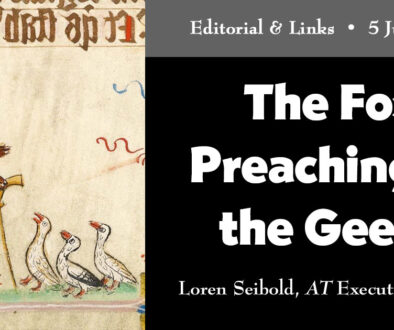Deaf Ministries Growing
By Debbonnaire Kovacs, posted July 14, 2016 [Photo: children sign “I love you.” Pixabay, public domain] The Australian Union Record reports that the Adventist church, for the first time, will be broadcasting a weekly church service signed in AUSLAN (Australian Sign Language). A church plant at Quaker Hill in the west of Sydney, in partnership with Christian Services for the Blind and Hearing Impaired, has added live signing to its Sabbath service, which its professional video team already airs on YouTube. The services are re-broadcast on the Hope Channel.
“As a Church, we have done little for this demographic,” said Lee Dunstan, CSFBHI manager. “The Church has a clear mission to reach all tongues and peoples, the Deaf among them, and so is funding the initiative.”
Meanwhile, on May 13-16, an International Congress for Deaf and Deaf-Blind was held in Seville, Spain, with 230 attendees from fifteen countries. The theme was “Through My Hands,” and Dr. Larry R. Evans, assistant to the General Conference president, reported that the conference “sought to liberate and restore meaning to those who are so often marginalized. They have spiritual gifts, intellectual insights and compassion for others to share. We have so much to learn from the Deaf culture. Symbolically this was a perfect place to hold this special international event.”
In an attempt to learn more about Adventist ministry to the deaf community, I discovered Adventist Deaf Ministries International, and learned that Dr. Evans is, in fact, the ministry’s coordinator. His welcome on the DFMI “about us” page says in part, “It is our desire that this website will help foster a sense of international community of fellowship, unity and encouragement as both the Deaf and the hearing participate together in God’s mission.”
A search for “history of Adventist deaf ministry” takes a seeker straight to pioneer Pastor Arthur Griffith, the denomination’s first deaf pastor, ordained in 1969. Griffith died recently, and there is a short video clip uploaded on YouTube by Adventist Archives in which Dr. David Trim says, “Adventists were quick to start a ministry for blind people, but we were slow to recognize the need to provide specialized ministries to hearing impaired people. Griffith was a real pioneer.”
Griffith apparently began simply reaching out where he was with what he had. According to Adventist News Network, he was ordained “following a request for him to serve as the leader of a Deaf Bible study group. A former machinist lacking formal theology training, he founded much of the church’s Deaf outreach and served as a minister to Deaf church members around the country. He studied with, converted and mentored most of the Deaf Adventist leaders currently serving the church.”
Deaf ministries are growing. Today there are deaf camps, deaf camp meetings, signing at more churches, and even a new church to be planted in Jamaica. On July 9 at the first “Day of the Deaf and ‘Hard of Hearing,” organized at Portmore Adventist Church in St. Catherine, plans were announced to establish a church especially for the hearing impaired.
The ANN story quotes Adrian Cotterell, Sabbath School and Personal Ministries director for Jamaica, as saying that an ideal gathering place has already been identified. “We understand that the largest concentration of deaf and hearing impaired persons are in the Portmore area and by the grace of God we’re going to have a vibrant church here,” Cotterell said. The church plans to begin services in October.
Speaking of the International Congress in Spain, Dr. Evans said, “This congress is but a sample of things to come. It is anticipated that the General Conference will host a world congress for the Deaf and Deaf-Blind in 2019. The venue is yet to be determined. The vision is spreading – not only for the Deaf but for the blind, those with physical and mental limitations as well as for the orphans of the world. The new General Conference ministry, called Special Needs Ministries, recently voted a new motto: “All are gifted, needed, and treasured!” This is not a program. It is the beginning of a global people movement that is releasing the giftedness of those who have been quieted, shunned and marginalized far too long. Join the movement.”
Yes. Do. Join the movement of doing what you can, with what you have, where you are. Now. Young or old, strong or weak, hearing or not, seeing or not, whole or broken, each of us can in some way bring a word of peace and hope into a fractured and hurting world.

Debbonnaire Kovacs is a speaker and the author of 25 books and over 600 stories and articles for adults and children. To learn more about her work or ask her to speak at your organization, visit www.debbonnaire.com.




